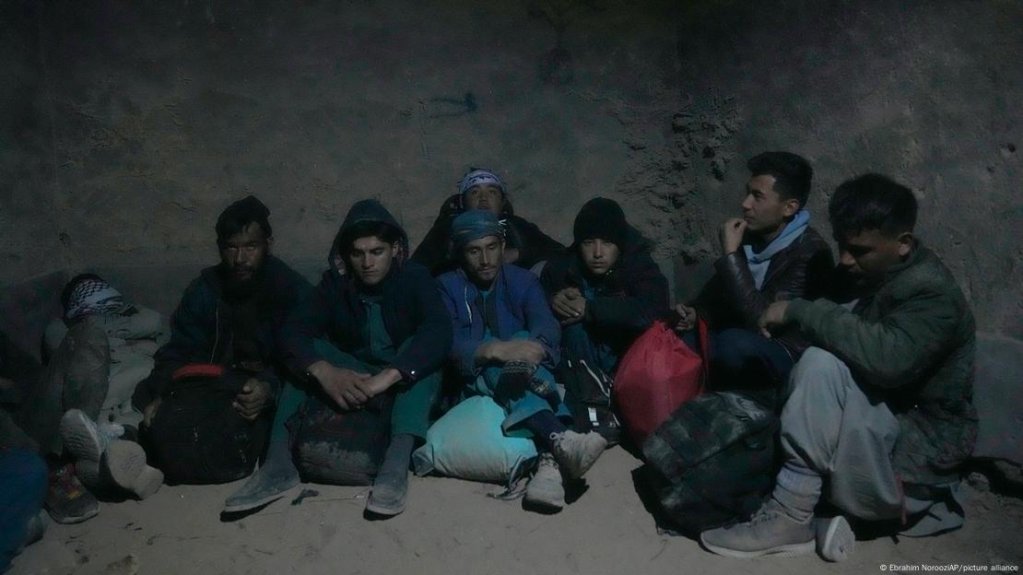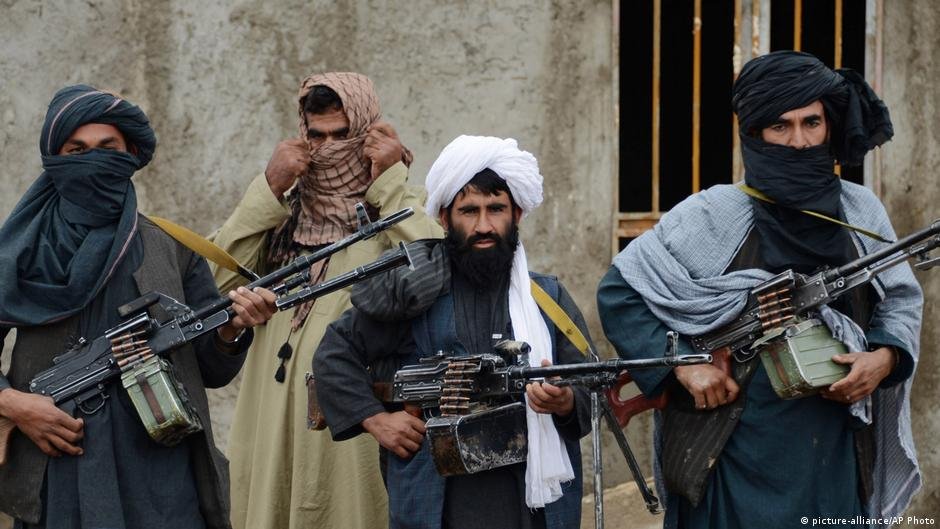Every day, thousands of Afghan refugees are being driven out of Iran. The deportees frequently face physical and verbal abuse, as well as extortion.
Thousands of Afghans continue to return to their country from neighboring Iran. According to the AFP news agency, as many as 3,000 people arrive back in the central Asian nation each day, where the Taliban, since their return to power in August 2021, have severely limited human rights.
Some of those arriving in Afghanistan had even been born in Iran but could no longer stay there. Some had let their visas to Iran lapse, others entered Iran without permission and were intercepted by authorities.
Nearly 90 percent of all Afghans who have no right to remain in the country have been deported; others have given up and opted to return voluntarily because they can no longer afford paying off the Iranian authorities.
"They are warned there (in Iran) that they must leave within one week, or that anyone above 18 must deposit 100 million toman ($2,375) in the bank," says Abdul Ghani Qazizada, an official working in the border town of Islam Qala, who is in charge of registering those who come back. "These are the people who return to Afghanistan voluntarily because of this problem."
The rate of expulsions from Iran has increased "in the last six months,” Qazizada adds in an interview with AFP.
Arriving at the border, traumatized
The International Organization for Migration (IOM) helps with the registration of the returnees. To start over in Afghanistan, they are given 2,000 Afghanis ($29) per person if they arrive with their family.
However, if they arrive alone, they don’t receive any kind of financial aid and are left entirely to their own devices.
This kind of reluctant homecoming is particularly traumatizing for many, who had hoped to achieve a better life in Iran and beyond.
"Refugees face a lot of physical and mental torture," Qazizada explains, while processing the newest batch of arrivals. Some of them have harrowing tales to share.

Afghans beaten to death
Fazila Qaderi, 26, cannot hold back her tears as she tells AFP what she and her husband witnessed while they were being held at the Karaj camp near Tehran — after spending nearly four years in Iran as irregular migrants.
She says that they had been working on a farm for years, and that this was going well, until she fell ill and had to be hospitalized for 12 days for a severe allergic reaction, which later required surgery.
"We gave 1,200 dollars to the doctor for the surgery and they said they would do it the next day. When we went back, the security officials took us," she explained. "We couldn't take a single thing with us.”
She recounts how guards took them to the Karan camp and "beat us a lot for six or seven days with metal batons." Her husband, she explains, suffered broken bones.
Others had even worse experiences. "I saw an Afghan die, as they (still) shouted at him," she reveals. In the end, the anguish became too much to endure: Qaderi says she eventually gave in and told the guards: "Kill me or send us back to Afghanistan."
In the end, Qaderi got her wish — but she doesn’t even know how to get to her home province of Takhar in northeastern Afghanistan from the border; the couple have no money to pay for the trip.
Also read: Germany: Debate over visits to home countries by refugees
Passports destroyed, permits shredded
Others have similar stories to tell: Day labourer Abdul Basir, 29, also recalls being beaten at the Karaj camp — to the point that he couldn't move any more.
He describes suffering "broken hands and feet, (seeing) people fainting, maybe even dead." Some people were taken away and not seen again, he adds.
Basir added that being able to produce legal papers was not the only problem that people like him faced in Iran.
He says was arrested at work and soon expelled from Iran, despite having a valid passport and visa. According to his account, security personnel tore up Afghan passports or Iranian residence permits of those, who had them.
After spending days crammed in with hundreds of other Afghans for days in Karaj, Basir was deported back alongside dozens of others to Afghanistan, and dropped at the border post.
"Now, I don't have any money to pay for the bus to go home," he also told AFP.
'Respectful' expulsions
Iranian President Masoud Pezeshkian said that Tehran was gearing up its repatriation of illegal nationals to their country, stressing however that this was being done "in a respectful manner."
Iran's spokesman for the parliamentary National Security Committee, Ebrahim Rezaei, declared earlier in September that police plan to "expel more than two million illegal citizens in the near future."

Afghans represent over 90 percent of foreign nationals in Iran, and most are believed to enter the country without proper identity papers or permits, according to Iran’s government-run IRNA news agency.
Also read: Germany: Is bureaucracy delaying Afghan journalist reception program?
with AFP
